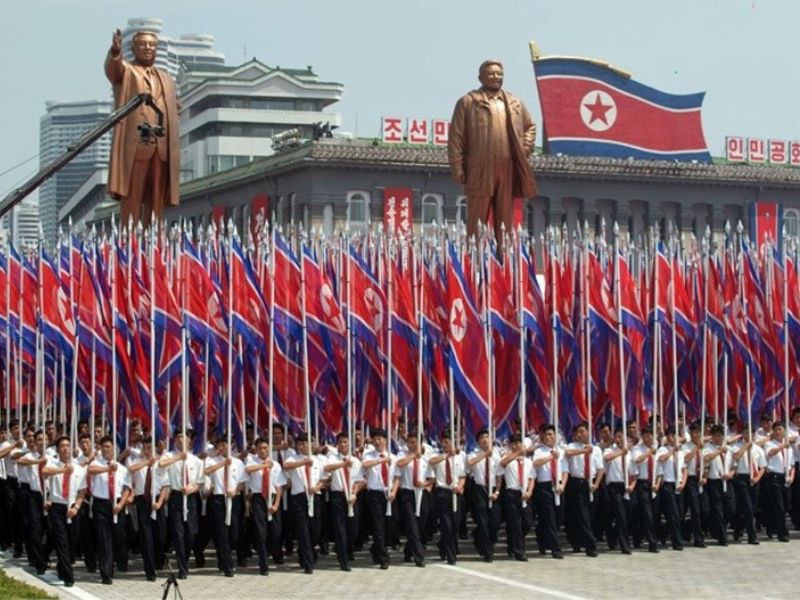North Korea: Where Christians are the Enemy of the State

11/22/2024 North Korea (International Christian Concern) — Though it maintains a small token church as a nod to its previously religious past, the North Korean government is no friend to religion.
Its despotic leader, Kim Jong Un, demands absolute loyalty to himself. In his calculus, any religious sentiment is proof of divided loyalties and cause for indefinite imprisonment, cruel torture, and even death.
Though the severity of the persecution makes a study of the North Korean church extremely difficult, escapees of the regime tell of a small but growing church body in the country worshipping quietly but faithfully.
Quick Facts
Population: about 26 million (2023 estimate)
Religions: Religion statistics are unknown.
Ethnicities: Almost entirely ethnically homogeneous, though there are small Chinese and Japanese communities.
Types of Persecution
Government Restrictions — The North Korean government operates with a zero-tolerance policy toward free religious expression and enforces that policy with extreme cruelty.
Summary
Juche, the official state ideology of North Korea, is a political philosophy based on the idea of self-reliance and closure to the outside world. Though resoundingly successful in closing itself to the international community — which has, for its part, also worked to silo North Korea — its aspirations to self-reliance have been far less successful.
Not only does North Korea rely on trade and exchange of resources, including forced labor, with its neighbors China and Russia, but by nearly every metric, the country is failing. Though the government uses its robust propaganda machine to project an image of prosperity, the population experiences a widespread lack of access to adequate food, with food insecurity only deepened because of the coronavirus pandemic.
In this fraught context, every person and resource in the country is treated like property of the state. The Kim dynasty, in power since the country’s founding in 1948, demands absolute loyalty. No person is safe from the Kims’ grasp — from state overlords who dictate the peasants’ every move to the public and dramatic execution of powerful generals, blown up as targets for missiles or eaten by piranhas in a large tank kept in Kim Jong Un’s home.
State censors strictly prohibit independent thought, with religious belief a particular target. Anyone caught with a Bible, listening to Christian broadcasts from South Korea on the radio, and even in private prayer are subject to severe punishment. Those caught, and often their families and friends as well, are swept away and held indefinitely in one of North Korea’s many political prisons, where authorities expose them to the most extreme human depravity imaginable.
Severe torture is common in North Korean prisons, with survivors reporting particularly harsh treatment for religious prisoners. Prison operators make mothers watch as they murder their children and sell inmates to Russia to work as laborers in large, state-run projects in Siberia.
Religious freedom advocates worldwide have long called attention to the atrocities taking place in North Korea. Kim Jong Un’s authoritarian regime aggressively prosecutes anyone considered to be working against the state’s interests. Actions as simple as praying, talking about the Bible, and sharing one’s faith can lead to beatings, years of imprisonment, and even torture.
A U.N. report highlights several areas of particular concern, including extremely harsh conditions in the country’s prison system and the torture of prisoners of conscience. The North Korean government, the report states, “is engaged in a systematic and widespread attack against people considered a threat to the country’s political system and leadership, including people who practise [sic] religion.” As part of this attack, people exercising their religion are “systematically imprisoned without due process and are subjected to harsh treatment for exercising basic human rights.”
Despite the persecution, former North Korean prisoners report that some Christians are courageous enough to share the gospel with their fellow inmates, hosting silent prayer gatherings and sharing contraband scripture at the risk of their lives. It is essential that the international community, including South Korea, band together to push for the advancement of human rights in North Korea. North Korea’s many innocent civilians deserve no less.
ICC in North Korea
Among the most closed countries on earth, North Korea is a difficult place for any organization to work in. The regime is intentionally closed to outside influence, and the international community has—with the notable exceptions of China and Russia — all but severed any ties it may have had with the country before its partition into a north and south.
Still, some work on behalf of the North Korean church is possible, largely based in South Korea. There, a small diaspora of North Korean escapees lives near their former enslaver and requires support as they establish new lives in freedom. Throughout the years, ICC has also helped to support the church in North Korea through radio broadcasts, airborne leaflet distribution, and other means. Though this does not solve the political problem North Korea poses to the church, it does remind them that they are not forgotten.
To read our coverage of persecution-related news from North Korea, visit the ICC Newsroom. For interviews, please email press@persecution.org.
For interviews, please email press@persecution.org
